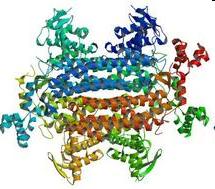New test for rare form of cancer
30 May 2011
A cheap and reliable diagnostic test for a rare form of cancer has been developed by researchers at the University of Oxford. The test involves screening tumour samples for a particular molecular fingerprint unique to this type of cancer.
 |
| A new test for a rare form of cancer picks a biological 'fingerprint' of a deficiency in the FH enzyme. |
Hereditary leiomyomatosis and renal cell cancer (HLRCC) is a disorder which causes the development of benign but often painful tumours in the skin and, in females, in the uterus.
Between one in six and one in ten people affected by the disorder will go on to develop an aggressive form of kidney cancer called papillary renal cell cancer. The condition often strikes people in their twenties.
The disorder is caused by genetic mutations – which may be inherited – that alter the production of an enzyme called fumarate hydratase (FH). This leads to an accumulation of fumarate within cells that promotes the development of cancer cells.
An international team of scientists has now identified a particular protein modification which is induced by deficiency in the FH enzyme. The study, led by researchers in Oxford's Nuffield Department of Clinical Medicine, is published in The Journal of Pathology,
This alteration is unique to this type of tumour and can be used as a biomarker – a biological 'fingerprint' to identify tumours caused by this process.


















